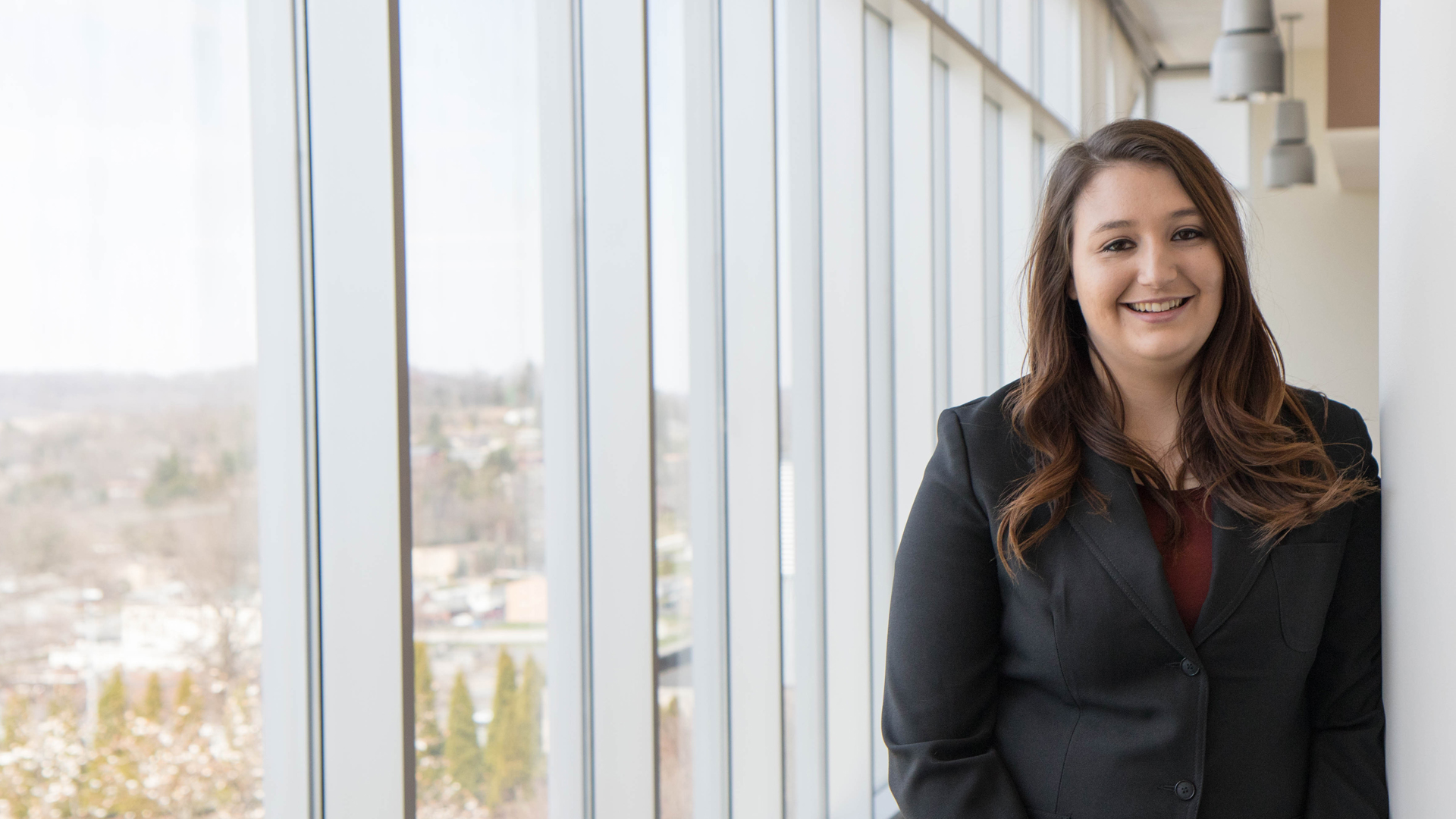Two T32 Programs Unite to Host Joint Symposium
June 2024
The Biomedical & Behavioral Sciences (BBS) and the Stroke and its Alzheimer’s Disease-Related Dementias (ADRD) T32 training programs hosted a joint symposium this June at the WVU Erickson Alumni Center.
The event featured short talks by students, in addition to a poster session. Student winners of the short talk presentations were Nicole Eminhizier-first place, Rhiannon Macom-second place, and Scott Saylor-third place. Awards were also given to poster session winners. Andrew Strutz and Erin Wylie tied for first place, Benjamin Menarcheck, Rebekah Thurn, and Brittany Elliott all tied for second place. Finally, Matthew Kays and Brandon Kirby tied for third place. The event also featured an Alzheimer’s disease panel discussion.
The keynote speaker was Dr. Karl Herrup, a Professor in Neurobiology, and a co-investigator of the Alzheimer’s Disease Research Center at the University of Pittsburgh. Dr. Herrup is also the author of the book How Not to Study a Disease - The Story of Alzheimer’s. Andrew Strutz, a 2nd-year scholar on the Stroke and ADRD T32 said of the event, "The symposium provided an opportunity to have dinner with the speaker. He provided insight on what to consider when looking for a postdoctoral fellowship and making major life decisions. I enjoyed the opportunity to interact with students from other T32’s on a scientific level when I would have otherwise not had
an opportunity to do so." This is not the first time two T32 programs have joined together to offer dynamic opportunities for trainees and scholars. It is not uncommon for training programs to combine book clubs and other events to encourage participation of students from multiple labs. Last year the Biomedical and Behavioral Sciences (BBS) T32 and the Cell & Molecular Biology and Biomedical Engineering (CBTP) T32 also teamed up for their spring symposium with a theme around effective scientific communication, a relevant topic across any discipline. Students and faculty should look forward to future events in the coming academic year.
Stroke and Its Alzheimer’s Disease-Related Dementias (ADRD) T32 Training Program Appoints New Trainees/Scholars
April 2024
Earlier this spring, the ADRD T32 held an open call for applications to its training program. The program focuses on Stroke research, recognizing its strong correlation with aging and various age-related co-morbidities. These comorbid conditions include cognitive decline, Alzheimer’s disease (AD), multi-infarct dementia, cardiovascular disease, cerebrovascular disease, hypertension, hypercholesterolemia, immune suppression, metabolic syndrome, obesity, sleep deprivation and depression.
Despite this evident association, the impact of age-related comorbid conditions on stroke occurrence, severity, and long-term recovery remains underexplored in experimental studies. This gap in research contributes to the challenge of developing new therapies for acute stroke brain damage. To address this issue and advance stroke research, there is a crucial need to train the next generation of researchers. This training aims to equip them with the skills to evaluate stroke within the context of the affected population, particularly focusing on the elderly with multiple comorbid conditions. By understanding these complexities, researchers can better identify new preventatives, acute treatments, and rehabilitation methods for stroke.
The newly appointed trainees are as follows:
First year trainees: Brandon Kirby, Sabine Lohmar, Mackinzie Smith and Mikaela Barbour
Students returning for a second year as trainees: Matt Kays, Nicole Mackenstein, Scott Saylor and Andrew Strutz
A big congratulations to these students! We wish them success in their graduate programs and on their journey in joining and participating in the ADRD T32 training program.
Stroke/ADRD T32 Students Present at Society for Neuroscience Meeting
February 2024
Stroke and Its Alzheimer’s Disease Related Dementias (ADRD) T32 students recently presented at the Society for Neuroscience (SfN) meeting in Washington D.C. held November 11-15th, 2023. This was an exciting and impactful opportunity for these students, as this meeting is currently the largest annual global neuroscience conference. It is so large, it typically attracts upwards of 30,000 attendees. *Not all of the students that presented shared their titles with the Training Tribune, but below are a handful of the abstracts presented:
Saina Sanjay Prabhu & Nicole Eminhizer: S Prabhu, N Eminhizer, A Hanshew, E.Kelley, JW Simpkins, P Chantler. “Chronic stress accelerates cerebral hypoperfusion and cognitive decline in Alzheimer’s triple transgenic mice.”
Nicole Eminhizer & Saina Sanjay Prabhu: NM Eminhizer, A Hanshew, S Prabhu, S Ball, A Giromini, R King, E Kelley, PD Chantler. "Does Xanthine Oxidase accelerate Alzheimer's Disease-related pathologies in a high fat and fructose diet?"
Anna Korol: AS Korol, AK Adcock, and V Gritsenko. “Quantifying changes in muscle activity related to postural forces produced during reaching by people with chronic hemiparesis.”
Anna Korol: AS Korol, AK Adcock, and V Gritsenko. “Quantifying changes in muscle activity related to forces of intra-limb coordination produced during reaching by people with chronic hemiparesis.”
James Scripter: J Scripter, G Jones, M Hruska. “Dendritic spine nano-architecture underlies selective vulnerability of synapses to Amyloid-beta synaptotoxicity”.
Brianna Clary: BL Clary, CB Beswick, B Pacheco Pereira, D Komandooru, CG Hernandez, BD Kirby, M Al-Humaire, DC Nwafor, D Dakhlallah, CM Brown. “Endothelial cell deletion of tissue-nonspecific alkaline phosphatase exacerbates neurovascular unit dysfunction and alter circulating extracellular vesicle profiles in experimental ischemic stroke.”
All T32 students in all four funded programs are encouraged to present their work often, and some programs offer additional travel expenses for students to do so. Look for communications from the HSC Office of Research & Graduate Education regarding upcoming opportunities to apply for T32 programs. Congratulations to the Stroke/ADRD team on their successful presentations!
National Institute on Aging (T32 AG052375)
